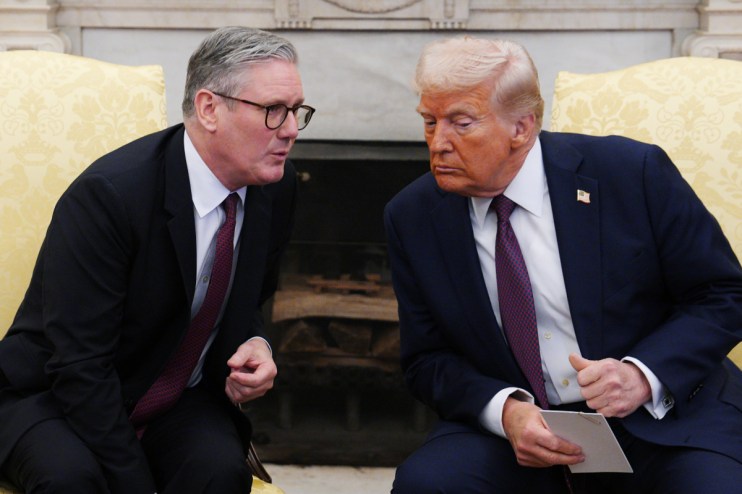US tariffs: Businesses don’t want ‘knee jerk’ response, Starmer insists

Sir Keir Starmer has insisted UK businesses want a “calm and collected response” to Donald Trump’s tariffs, “not a knee-jerk” reaction.
The Prime Minister sought to offer calm, as he suggested the UK could retaliate with tariffs on US goods in return, but insisted that “nobody wants a trade war”.
Speaking to Sky News, Starmer stressed: “We are of course negotiating an economic deal which will, I hope… mitigate the tariffs.”
And when asked if he had been “played” by the US President, despite his efforts to build a good relationship with Donald Trump, the Prime Minister said: “The US is our closest ally.
“Our defence, our security, our intelligence are bound up in a way that no two other countries are. So it’s obviously in our national interest to have a close working relationship with the US, which we’ve had for decades, and I want to ensure we have for decades to come.”
He added that talks on an economic deal would normally take “months or years” but “in a matter of weeks we have got well advanced in those discussions”.
‘Nobody welcomes’ tariffs
But Starmer also admitted – as Downing Street first confirmed yesterday – that it was likely Trump’s tariffs would hit the UK economy, and promised to act in the national interest.
It comes just days after official watchdog the Office for Budget Responsibility (OBR) warned Chancellor Rachel Reeves’ seemingly precarious fiscal headroom could be wiped out before the Autumn Budget by external events, putting further pressure on the Treasury to raise taxes.
“The likelihood is there will be tariffs,” he said.
“Nobody welcomes that. We are obviously working with the sectors most impacted at pace on that.
“Nobody wants to see a trade war but I have to act in the national interests.”
That means that “all options remain on the table” in response, he added.
UK-US trade deal
Business and trade secretary Jonathan Reynolds played down the suggestion that a deal with the US to avoid tariffs is done but not yet signed.
He told Times Radio: “I wouldn’t say it’s done but we have been, as you’ve said, closely engaged with the US, intensively, because we believe that a deal is in the national interest.”
Reynolds said he believed there would be “no exemptions” for any country to Trump’s ‘liberation day’ tariffs due to be unveiled on Wednesday but added that what the US is trying to achieve has “jumped around” at different times.
He said food standards were a “red line” in trade talks but did not deny that dropping or reducing the digital services tax for US businesses was on the table in negotiations.
Meanwhile, Conservative leader Kemi Badenoch has said a trade deal is the “best way” to avoid Trump’s tariffs and that retaliation will “make everyone poorer”.
She told LBC: “A trade deal is the best way but it has to be something significant and comprehensive, not just a deal that tinkers at the margins in easy areas.
“Some people will want us to have trade retaliation – that just makes everyone poorer. This is a time for significant diplomacy and showing that actually, if you put tariffs on, the people who will suffer aren’t just our exporters but also the American consumer who will have to pay more.”
